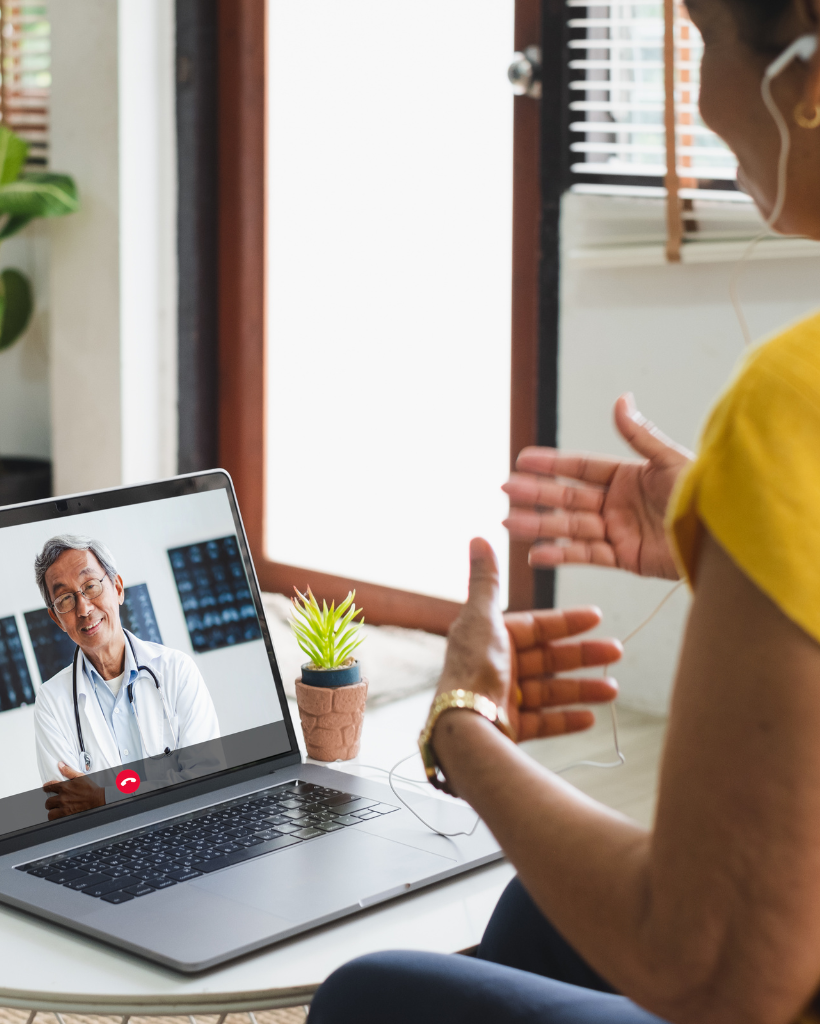Benefits of Using Teledoctors for Remote Medical Consultations
Benefits of Using Teledoctors for Remote Medical Consultations
Blog Article
Discovering the Conveniences and Difficulties of Teledoctors in Modern Health Care
As the healthcare landscape evolves, teledoctors have arised as an essential component in linking voids in medical accessibility and performance. While they use the promise of reaching remote areas and reducing functional expenses, the journey is not without its hurdles. Privacy worries, the electronic divide, and cybersecurity threats present significant challenges that should be resolved to harness their full potential. How can the healthcare market balance these benefits with the fundamental obstacles? This conundrum welcomes a deeper expedition into the transformative function of teledoctors fit the future of health care distribution.
Expanding Access to Treatment
Telemedicine has arised as an essential technology in modern health care, significantly broadening access to look after varied populaces. By leveraging digital modern technology, teledoctors have changed the conventional medical care distribution model, making it possible for patients in underserved or remote areas to get prompt medical assessment. This development is specifically useful for individuals living in country communities, where the shortage of health care centers and experts often causes delayed or poor therapy.
Teledoctors are instrumental in linking the space developed by geographical obstacles. With digital examinations, people can access a broad variety of healthcare solutions without the demand for comprehensive traveling.
The combination of teledoctors right into healthcare systems also supports the management of public wellness situations by promoting quick action and triage. During pandemics, for example, online assessments reduce the problem on physical healthcare facilities, decreasing exposure dangers for both individuals and health care service providers. As telemedicine remains to develop, it assures to reshape the landscape of medical care availability, making it a lot more reliable and inclusive.
Cost-Effectiveness of Teledoctors
The cost-effectiveness of teledoctors is a considerable aspect driving their prevalent fostering in medical care systems. By minimizing the need for physical infrastructure and in-person visits, teledoctors supply a more cost effective alternative to standard medical care shipment.
Moreover, teledoctors help with a much more efficient usage of healthcare sources by reducing unneeded emergency clinic sees and medical facility admissions. Clients can access prompt examinations for small ailments or follow-up care, which assists to ease the burden on overstretched healthcare facilities. This performance not only leads to cost savings for doctor however also minimizes the economic stress on clients that could otherwise face pricey hospital costs.
Furthermore, teledoctors can help in managing chronic conditions a lot more efficiently by providing consistent monitoring and prompt interventions. This positive strategy can avoid complications, thus decreasing lasting therapy prices. Overall, teledoctors offer a practical option to the escalating costs of medical care, while preserving top quality care delivery.
Enhancing Patient Benefit
While cost-effectiveness plays a crucial role in the rise of teledoctors, improving person ease stands as another engaging advantage of this health care model. With the integration of teledoctors, individuals can bypass the traditionally time-consuming procedure of organizing and going to in-person visits.
Additionally, teledoctors use adaptable organizing, permitting individuals to organize appointments at times check my reference that best fit their personal and professional dedications. This versatility is vital for people stabilizing requiring work routines or household obligations, guaranteeing that medical care can be incorporated seamlessly into their lives. Additionally, the capacity to accessibility physician from the comfort of one's you can check here home can lead to raised patient engagement and adherence to therapy plans, as the barriers to looking for treatment are minimized.
The benefit offered by teledoctors not just enhances the client experience yet likewise contributes to a much more receptive and effective medical care distribution system, eventually supporting better wellness outcomes.
Addressing Personal Privacy Concerns
In the middle of the expanding fostering of teledoctors, personal privacy problems become a significant consideration. As healthcare increasingly relies on digital systems, making certain the discretion of person details ends up being vital. The digitization of medical records and using telecommunication technologies demand durable protection procedures to shield delicate information from unauthorized access and violations.
Medical care service providers must abide by rigorous laws, such as the Health And Wellness Insurance Coverage Portability and Liability Act (HIPAA) in the USA, which establishes nationwide requirements for protecting medical details. Compliance More Info with such regulations is critical in preserving client trust fund and guaranteeing their data is managed responsibly. Security of information, safe communication channels, and regular audits are a few of the steps that can be executed to improve data defense.
In spite of these measures, challenges persist. Cybersecurity dangers are advancing, and health care companies should remain watchful to brand-new vulnerabilities. Furthermore, informing both individuals and medical care providers about best techniques in information privacy is necessary. This includes recognizing the restrictions of digital interaction and the relevance of protected login credentials. teledoctors.
As teledoctors end up being a lot more important to medical care distribution, dealing with privacy worries is crucial to ensure both the efficacy and credibility of these services.

Browsing the Digital Divide
Connecting the electronic divide is an essential obstacle in the extensive adoption of teledoctors. The advantages of teledoctors-- such as enhanced access and comfort-- remain unreachable for several people that might most benefit from them.
Additionally, campaigns to subsidize modern technology for low-income homes can play a crucial function in ensuring equitable gain access to. Health care providers and neighborhood companies ought to team up to provide electronic literacy programs, equipping patients to navigate telehealth systems with confidence.
Verdict
The combination of teledoctors into modern medical care provides substantial benefits, consisting of increased accessibility to care, cost-effectiveness, and enhanced individual convenience. Nevertheless, obstacles such as privacy worries, the electronic divide, and cybersecurity risks have to be addressed to make best use of these advantages. By executing robust data security actions, improving digital proficiency, and guaranteeing safe and secure technological infrastructure, the potential of teledoctors can be completely recognized, promoting equitable healthcare delivery and changing the healthcare experience for all individuals.

Report this page